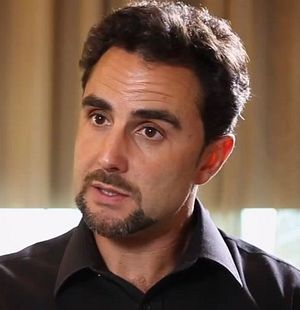Reports on the latest scandal involving HSBC’s Swiss branch have opened a Pandora’s box of misconduct, tax avoidance, and illegal activities linked to criminals, businessmen, and illustrious political figures. In Central Asia, several figures have been caught up in the leak, mostly businessmen from oil- and uranium-rich Kazakhstan. Minor account activity was found in Uzbekistan and Kyrgyzstan as well, but their size is not comparable to the big picture.
When French newspaper Le Monde received hundreds of thousands of files from Hervé Falciani, a whistleblower and a former employee of British bank HSBC in Switzerland, the editors deemed the investigation impossible. There was simply too much data. The media outlet sent the files to the International Consortium of Investigative Journalists (ICIJ), which built a team of 45 researchers to dig out the secrets of some questionable bank accounts hosted in HSBC. The “Swiss leak,” as it became known, revealed that some accounts were used to dodge taxes, while some others were kept to support criminals and arm dealers. The investigative team worked for months before releasing the results of the massive leak on February 8.
Most of the data refers to 2006-07. The “richest” person on the list is Canadian businessman Frank Giustra who, as reported by The New York Times, accompanied Bill Clinton to Kazakhstan in 2005. After a grand dinner and the gentle words of endorsement from the former U.S. president to his host Nursultan Nazarbayev, Giustra took home three big contracts that allowed his companies to enter three public procurement projects in uranium mining. Giustra later donated more than $30 million to Clinton’s charitable foundation. Giustra closed the deal by convincing both president Nazarbayev and then-head of state entity KazAtomProm, Mukhtar Dzhakishev, who has been in prison since 2009, arguably for political motives. This is not the only story linked to Clinton’s circles.
Among notable Central Asian characters featured in the leak, Margulan Seisembayev and Timur Kuanyshev of Kazakhstan deserve special mention. Seisembayev was a banker at Alliance Bank during the period covered by the investigation. A few years later, after the global financial crisis hit Kazakhstan, Seisembayev was accused of fraud in restructuring the $4.4 billion debt of his bank. Alliance Bank had been the first lender in Kazakhstan to default in 2009. The “serious impairment” amounted to $1.1 billion and former chairman Seisembayev was accused of orchestrating the fraud. According to legal proceedings at the London High Court, the financial vectors of Seisembayev’s fraudulent activities were banks in Cyprus. The Swiss files on the banker might lead to new, unsurprising findings on his accounts.
Kuanyshev is known to the British tabloids as “the man who stuffed $1m down his underpants,” as was discovered when he was stopped by the airport police, back in 1993, in Moscow. He is still involved in businesses he established during Kazakhstan’s transition to independence in the early 1990s. His BATT investment fund is involved in oil and gas ventures, mining, and banking, the latter a rather unfortunate venture with the Kazakh office of the Punjab National Bank. Incidentally, Timur’s brother, Doulat Kuanyshev is the ambassador of Kazakhstan to India.
The HSBC accounts linked to Kuanyshev and his wife held as much as $12 million in 2006-07, according to the ICIJ investigation; their lawyers refused to comment on their clients’ activities linked to these accounts. In 2008, Kuanyshev contributed $100 million in hard cash to the recovery of Timan, a Russian oil and gas upstream company that was battling bankruptcy. The company was then owned by Russian oligarch Alexander Lebedev. In 2011, the Kuanyshevs were on the invitation list for the wedding of Prince William and Kate Middleton.
Far shadier stories have emerged from the Swiss leaks than the cases involving Kazakhstan, and to a lesser extent Uzbekistan and Kyrgyzstan. But Central Asia has certainly not been immune from the revelations that have involved hundreds of thousands of people around the world, in intricate mazes of corruption, tax evasion, and “informal” business deals.
































